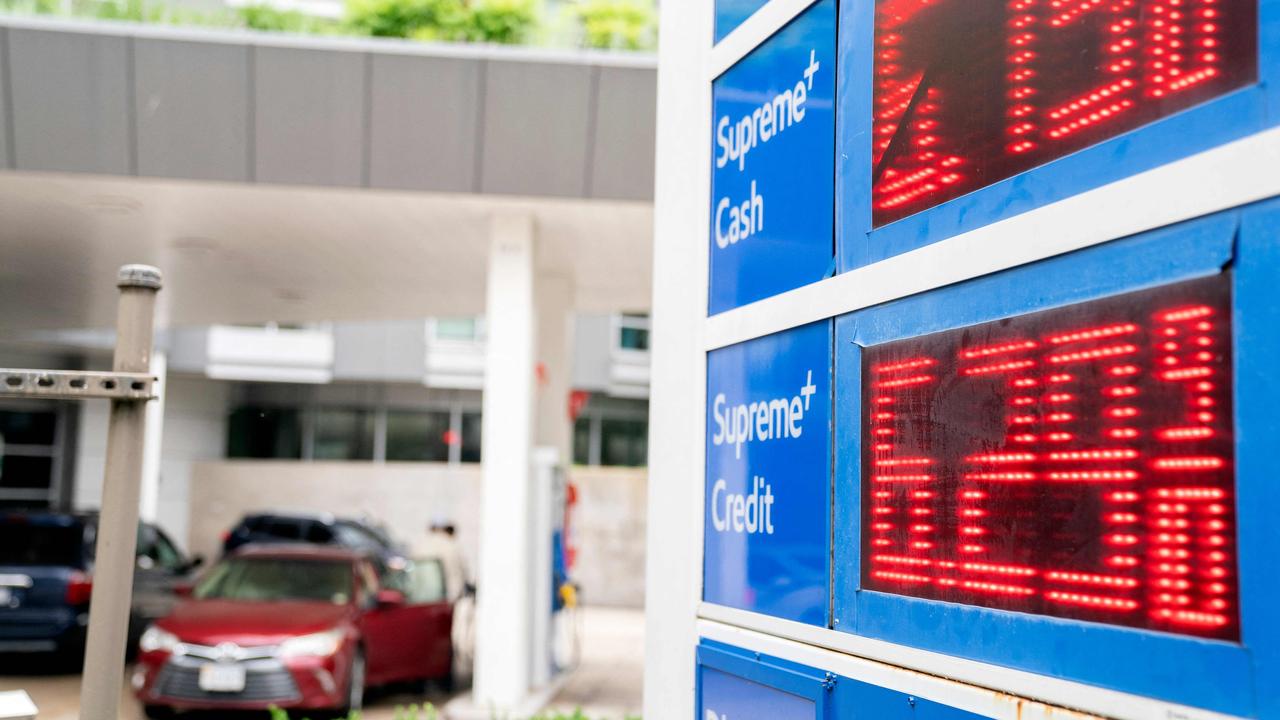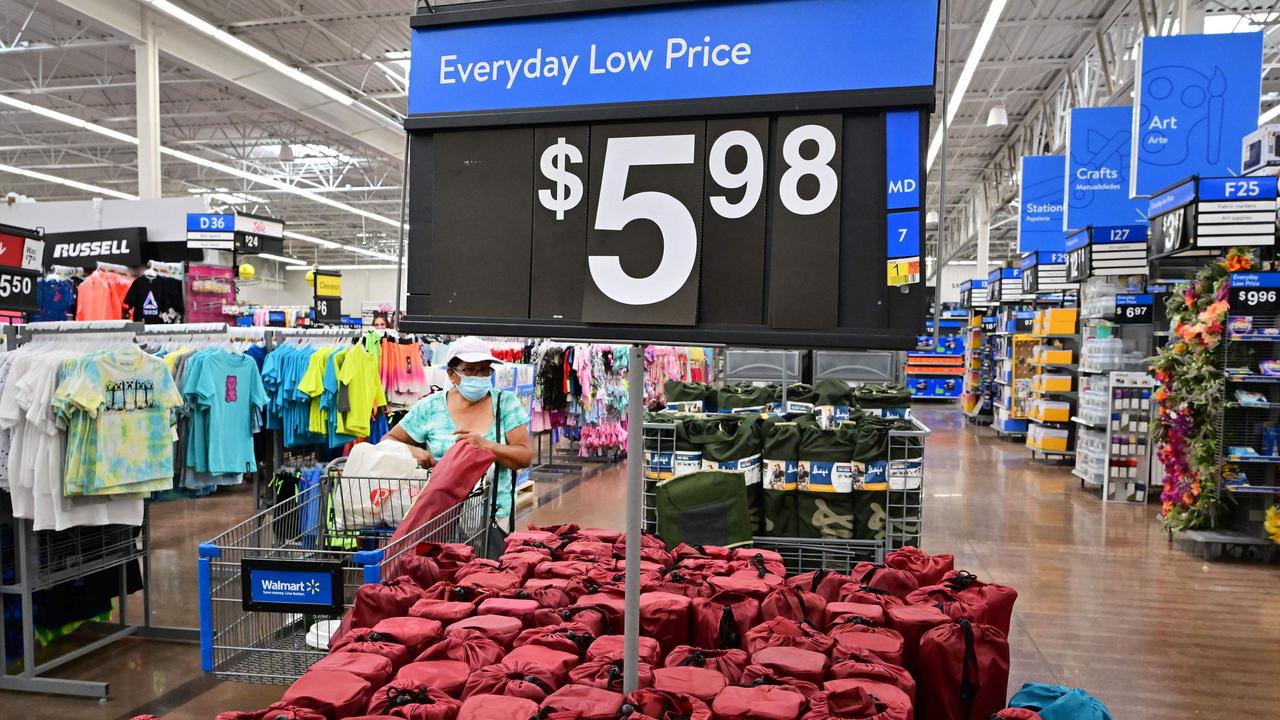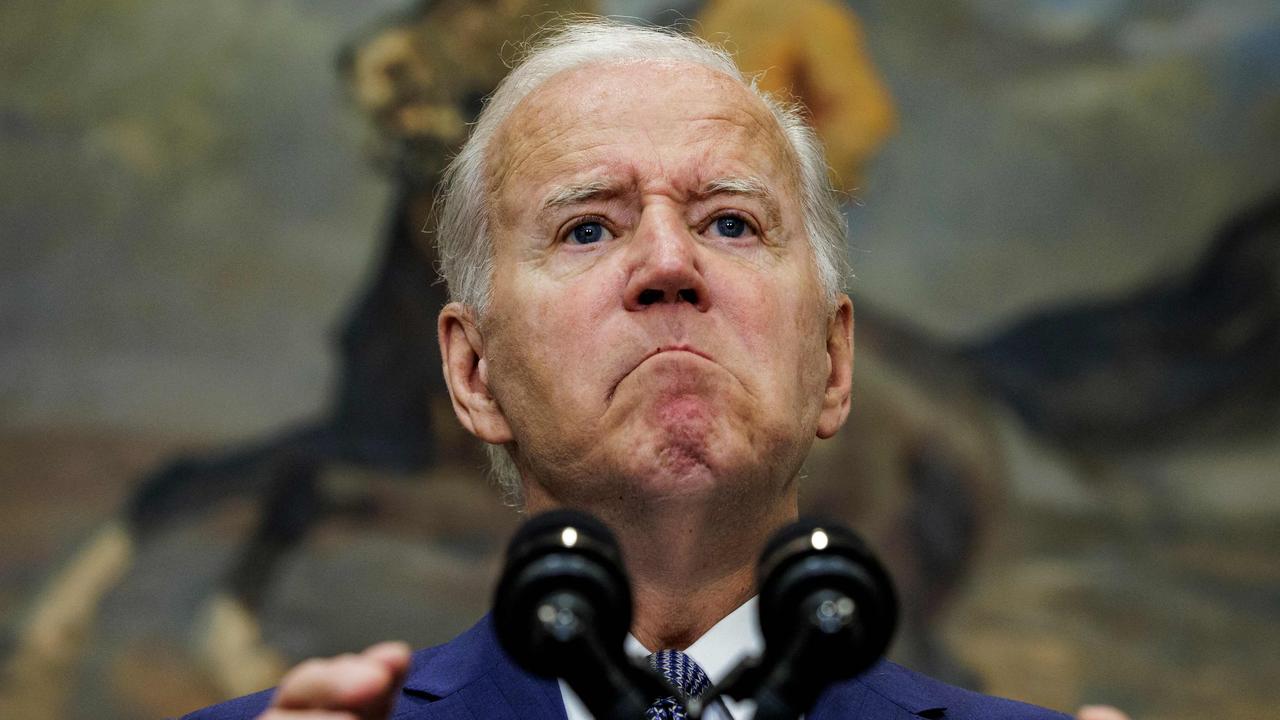
This article is more than
3 year oldUS inflation surged to a fresh peak of 9.1 per cent in June, further squeezing American families and heaping pressure on President Joe Biden, whose approval ratings have taken a battering from the relentless rise in prices.
Government data released non Wednesday showed a sharp, faster than-expected increase in the consumer price index compared to May driven by significant increases in petrol prices.
The 9.1 per cent consumer price index (CPI) spike over the past 12 months to June was the fastest increase since November 1981, the US Labor Department reported.
Energy contributed half of the monthly increase, as petrol jumped 11.2 per cent last month and a staggering 59.9 per cent over the past year. Overall energy prices posted their biggest annual increase since April 1980.

While acknowledging the inflation rate was “unacceptably high,” Mr Biden argued that it was also “out of date” as it did not reflect a clear drop in energy prices since mid-June.
The recent price drop had provided “important breathing room for American families. And, other commodities like wheat have fallen sharply since this report,” the president said in a statement.
Insisting that tackling inflation was the top priority, Mr Biden admitted his administration needed “to make more progress, more quickly, in getting price increases under control.” The war in Ukraine has pushed global energy and food prices higher, and US gas prices at the pump last month hit a record of more than $5 a gallon.
However, energy prices have eased in recent weeks, which could start to relieve some of the pressure on consumers.

But the Federal Reserve is likely to continue its aggressive interest rate increases as it tries to tamp down the price surge by cooling demand before inflation becomes entrenched.
The US central bank last month implemented the biggest rate hike in nearly 30 years, and economists say another three-quarter-point increase is likely later this month.
Ian Shepherdson of Pantheon Macroeconomics summed up the data in one word: “Ouch.” “This report will make for very uncomfortable reading at the Fed,” he said. “It rules out the chance of the Fed hiking by only 5 basis points this month”.

Signs of cooling?
Driven by record-high petrol prices, the CPI jumped 1.3 per cent in June.
But Mr Shepherdson noted some signs of cooling prices in the data and predicted “this will be the last big increase.”
When volatile food and energy prices are stripped out of the calculation, “core” CPI increased 5.9 per cent over the past year — still a rapid pace but slowing from the pace in May, according to the data.
Food and housing prices also rose in June, as did car prices, though the rate has stabilised or slowed from the past month, the report said.
The White House came out ahead of the report to predict it would show “highly elevated” inflation.
But press secretary Karine Jean-Pierre noted that the “backwards looking inflation data” does not take into account recent declines in gasoline prices.
According to AAA, the national average price at the pump was down to $4.63 a gallon, from $5.01 a month ago.